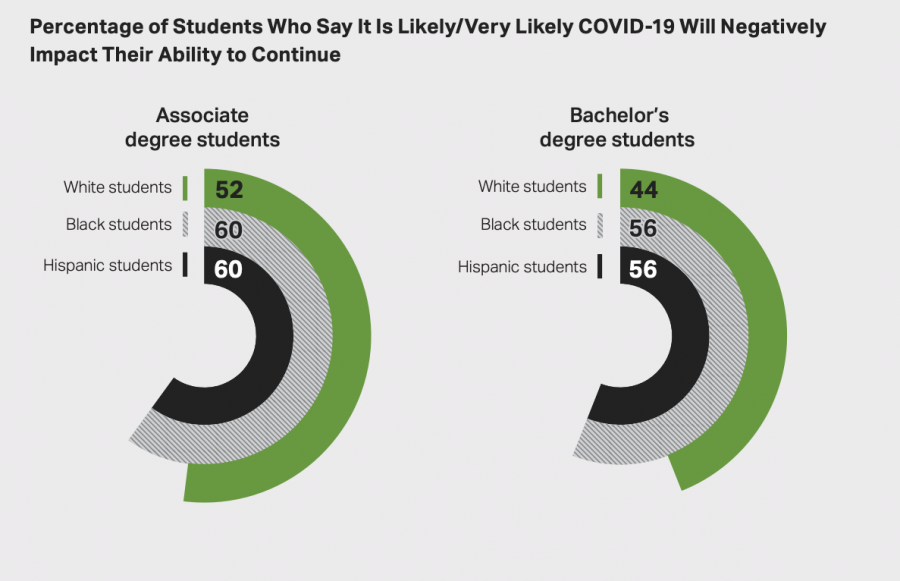Resources for students in a time of online learning
January 26, 2021
To help students through the struggles that may come with online learning, CWU’s Disability Services and Diversity and Equity Center (DEC) remain open to those who need them.
A recent study done by the Gallup-Lumina Foundation, a study group that focuses on higher education, has shown that online learning is generally seen by students to be of lower quality than in-person classes, particularly to those who transitioned from in-person learning to fully online learning in fall 2020.
“Currently enrolled associate and bachelor’s degree students who were forced online during the pandemic give lower quality ratings than their peers. Given these students’ desire for an in-person education experience, some frustration is to be expected,” the study reads.
According to Disability Services’ academic accommodations webpage, their services include exam accommodations, early registration, accessible textbooks and communication access services.
The webpage states that exam accommodations may be provided to students whose disability may interfere with their test-taking abilities. It can include extended time or use of assistive technology during exams.
Early registration is for students who require specific scheduling considerations as they may have physical limitations, attentional limitations or a psychological disability that is worsened by stress.
These students may be allowed to register for classes early. Those who need to be provided textbooks in alternate formats, require sign language interpreters or speech-to-text transcribers may also be eligible for this service.
“Services provided for students who are Deaf or Hard of Hearing include captioned video presentations, real-time captioning, and sign language interpreters,” the webpage reads.
Students that need material to be formatted in braille or an electronic format due to visual impairment or learning disabilities may be eligible for accessible textbooks. They should request these as soon as they register for classes in order to get them in a timely manner.
“Accommodations are determined based on the functional limitations of a student’s disability. The above list is not comprehensive and students needing accommodations not listed above should contact [email protected] to discuss their specific situation” the webpage reads.
Alongside Disability Services, the DEC also provides several resources that may be helpful to those struggling with identity-based challenges on top of the many transitions this year.
The DEC webpage lists multiple resources for LGBTQ students who may need help, including the Student Counseling Clinic, which is open for appointments and can be called at 509-963-1881 and Career Services, who have career counselors that can discuss LGBTQ topics that are related to work, which can be called at 509-963-1921. The DEC also is hosting multiple events and support groups that can be found on their webpage under the programs & initiatives tab.
The DEC can be contacted by calling 509-963-2127 or emailing [email protected].


